The spirit of classical Greece came to life on March 28, as the Sismanoglio Megaro, the Consulate General of Greece Istanbul in Istanbul, hosted the opening of “Poetry in Stone: Images of Classical Greece by Robert McCabe” as part of the celebration of the National Day of Greece.
In this iconic building renowned for its 19th-century Baroque and classical architecture, Konstantinos Sismanoglou made a significant donation to the Greek Government in 1939, facilitating the establishment of the Greek Consulate General in Istanbul, the occasion witnessed the presence of Bartholomew I, the Fener Greek Patriarch of Istanbul, along with clergy members, accredited consulate staff, Greek and Turkish businessmen, the Board of Directors of the Association for the Support of Greek Community Foundations (Rumvader), as well as Greek and foreign correspondents, alongside Turkish journalists.
As an honorary Greek citizen and someone who witnessed Greece during the 50s, Robert McCabe’s black-and-white works cleverly capture the history, culture and beauty of Greece by following the footsteps of historians and archaeologists. Taken before the restoration of many sites, these photographs surprisingly unveil the intertwined nature of the city of Athens with the magnificent feeling created by the multitude of archaeological monuments and temples inherited by ancient Greece, as well as this heritage’s total manifestation with the local people of the region.
In collaboration with the artist himself and curated by Sofia Hiniadou Kambani, the Consulate General of Greece in Istanbul now hosts 55 selected photographs from this rich pool of images, the majority of which come from the collection of the Athens City Department of Antiquities.
McGabe’s Greece
Ancient Greece holds a unique and significant place in the history of humanity. Its contributions covering areas such as philosophy, democracy, science, literature and architecture have left an indelible mark on the civilization of humankind. Marvelous works of art like the Parthenon, which stand as symbols of architectural perfection, bear witness to the Greeks’ elevated aesthetic sensibilities and their ability to create timeless monuments of universal appeal.
In the exhibition, presented through the artistic and sensitive lens of a young American, we witness the artistic abilities of the ancient Greeks, showcased through sites such as Athens, the Acropolis, Sounion, Epidaurus, Mycenae, Mystras, Delphi, Meteora, Dodoni, Camiros, Lindos, Knossos, and Ancient Thera, adorned throughout the country with numerous museums displaying archaeological findings for the admiration of both modern Greeks and visitors from around the world.
Robert McCabe employs his lens to create a poetic record of archaeological sites, nature and people in Greece during the 1950s and 1960s. Inspired by the grandeur of ancient artifacts, McCabe approaches them with respect and natural sensitivity, highlighting their beauty and harmonies without neglecting the human element. His photographs acknowledge colors but abstractly capture them with strokes of gray and white.
Born in 1934 in Chicago and raised in Rye, New York, McCabe began taking photographs at the age of five with a Kodak Baby Brownie gifted by his father, who was an editor at the New York Daily Mirror. He first visited Greece in 1954 while studying at Princeton University, gaining insights into the country’s history and culture. Returning in 1955 and 1957, he photographed the Cyclades Islands for National Geographic. His marriage to Greek native Dina Filippaiou, his lifelong companion in art and life, further deepened his love for Greece.
“Ancient Greek artifacts appeal remarkably to a broad audience. They attract archaeologists, architects, poets, lovers, historians, artists, painters, builders, scientists, scholars and, of course, photographers. For most observers, ruins are static, the enduring remnants of a bygone civilization. However, for a photographer – even a painter – ruins are in constant motion as the sun moves across the sky, clouds alter the spread of light on uneven surfaces, the sun’s orbit changes every day of the year and the surrounding vegetation blooms or withers. For photographers, ancient Greek artifacts and monuments present a unique challenge and offer different opportunities with each visit,” McGabe had explained.

“The ruins affect each visitor in different ways, reminding them of the rise and fall of civilizations, the invasions, and the astonishing periods of success followed by disasters. They trace the history of a people from periods of grandeur and prosperity to times of poverty and loss. Even in ancient times, the oldest remnants of the past were surrounded by a kind of sanctity. Hundreds, even thousands of years later, ancient sites or structures have become pilgrimage objects. Today, every archaeological site in Greece reminds us of the unique history, achievements, losses and rebirths of Hellenism,” said.
Celebrating ties
The Consul General of Greece in Istanbul, Dr. Konstantinos Koutras, who greeted numerous guests, emphasized the significance of National Day, focusing on Greece as a cornerstone of stability and security in the wider region. Following the signing of the Athens Declaration, he highlighted the message of Greece and Türkiye, underscoring the opportunities created by meaningful political dialogue, a positive agenda and confidence-building measures in the international arena during a critical period.
“Democracy is never an easy workout. But I’m proud to be standing here in front of you and tell you that Greece today is in very good shape. From 2009 to 2019, we spent a decade in a profound financial and social crisis. Then, COVID-19 knocked on the door. We overcame significant difficulties with the valuable assistance of our partners and thanks to the sacrifices of our people,” he said.
“Türkiye is a NATO ally and an EU candidate country. Bilateral relations, however, have seen time and again serious turbulences, with repercussions in the wider region. We are encouraged by the recent developments that are leading our relations (back) on the way to normalization, and we shall seek to use the momentum to both benefit and preserve this acquisition,” he added.
“After all, our two people have shown, not for the first time, a different path! The path of friendship and solidarity, as demonstrated in the aftermath of the devastating earthquakes in Türkiye a year ago. Greece was among the first countries to respond by sending search and rescue teams and tons of humanitarian aid within hours of the disaster,” he continued.
“Greece and Türkiye ought to live in peace, express their disagreements, have to discuss them honestly and must continue to seek solutions. And if those disagreements cannot be bridged, they should not automatically produce tensions and crises. It is well known that Greece supports the interaction of the friendly Turkish people with our people and with the rest of Europe and encourages visits by students, young people, scientists, businesspeople and tourists,” he remarked.

Koutras further expressed the Consulate’s desire to combine National Day celebrations with a cultural event, such as an exhibition featuring photographs by the internationally renowned American photographer Robert McCabe. He emphasized that culture is a delicate thread that unites us all, regardless of origin, gender or religious beliefs. He thanked the Fener Greek Patriarch Bartholomew I for his presence honoring the event.
Curator Sofia Hiniadou Kambani, in her speech, discussed the characteristics of the artist’s work, stating, “Robert McCabe creates a poetic record of archaeological sites, nature and people in Greece during the 1950s and 1960s using his camera lens. From this rich pool of photographs, we selected 55 works from the collection of the Athens City Antiquities Department, most of which are located on the sacred rock of the Acropolis.” She also read a greeting message from the artist, who couldn’t attend the opening.
In his message, Robert McCabe said, “During my first visit to Greece in 1954, I had the opportunity to photograph Greek antiquities for the first time. I wrote to my family that the stones of the Acropolis provided endless opportunities for new images as they moved in the sunlight. I have seen that this is still true even after 70 years.”

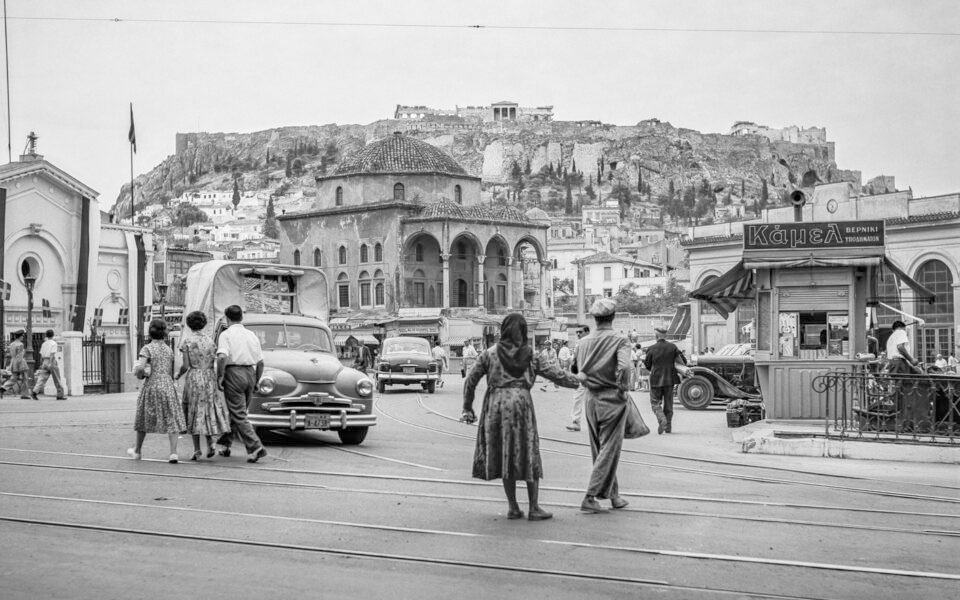
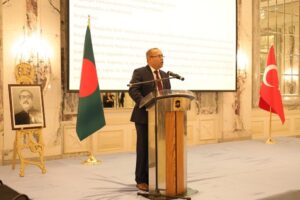
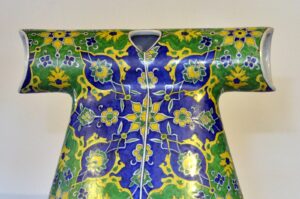
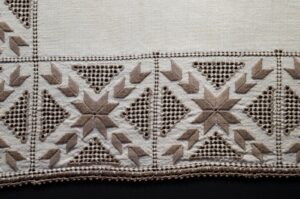
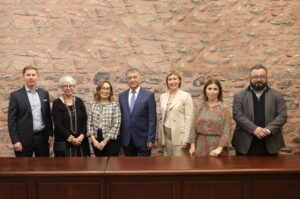
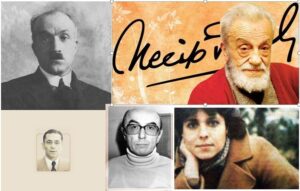
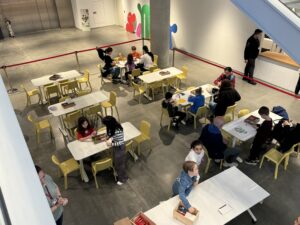
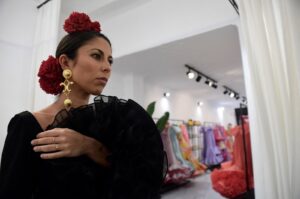

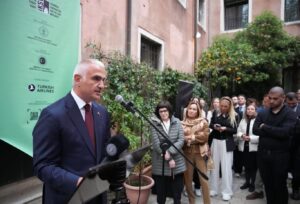
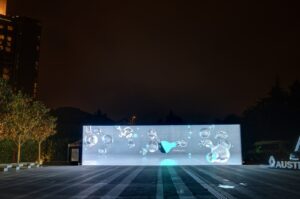
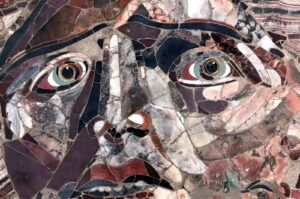
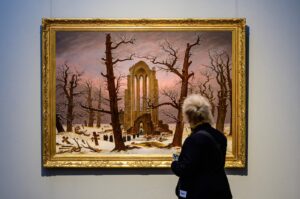

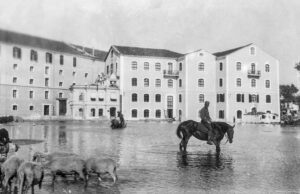
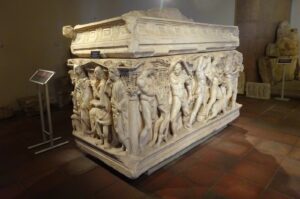
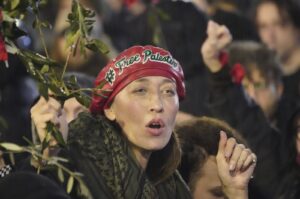

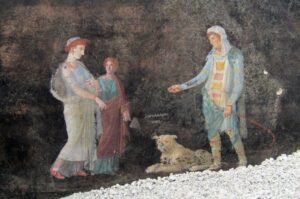
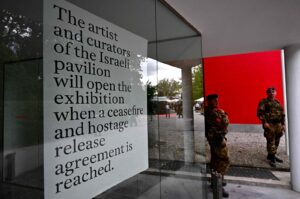
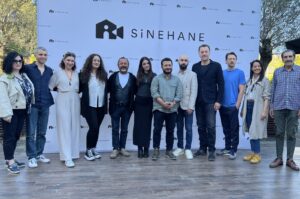

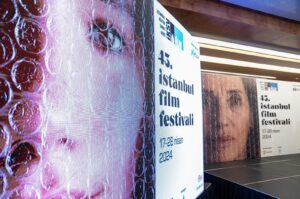
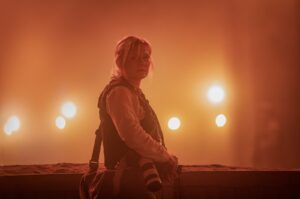
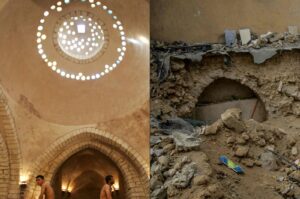

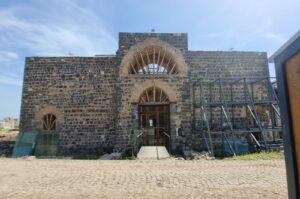
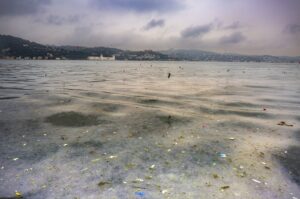
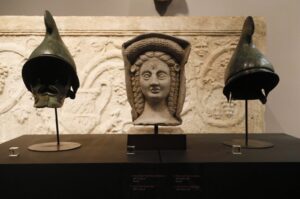
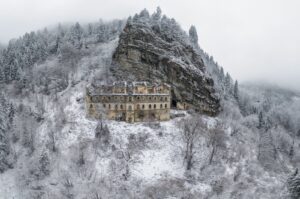
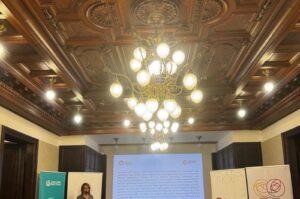
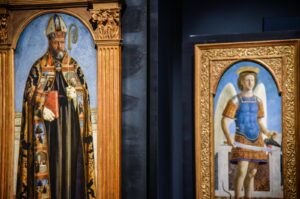
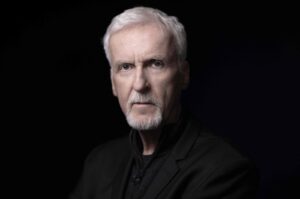
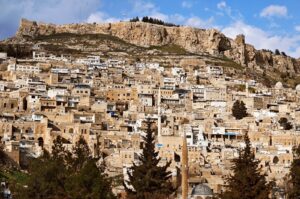

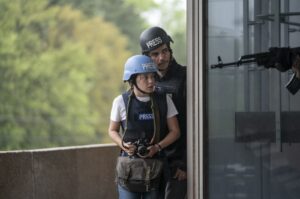
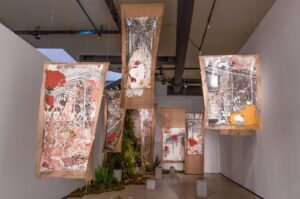
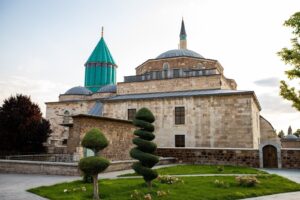

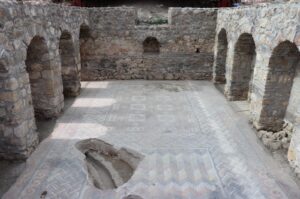

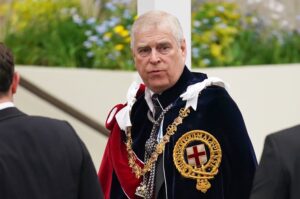
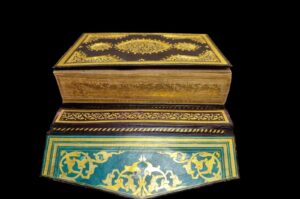

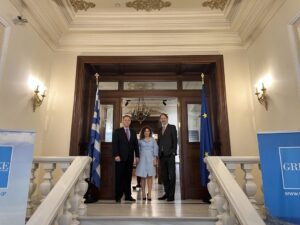


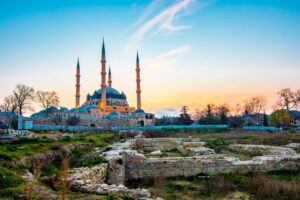



Be First to Comment